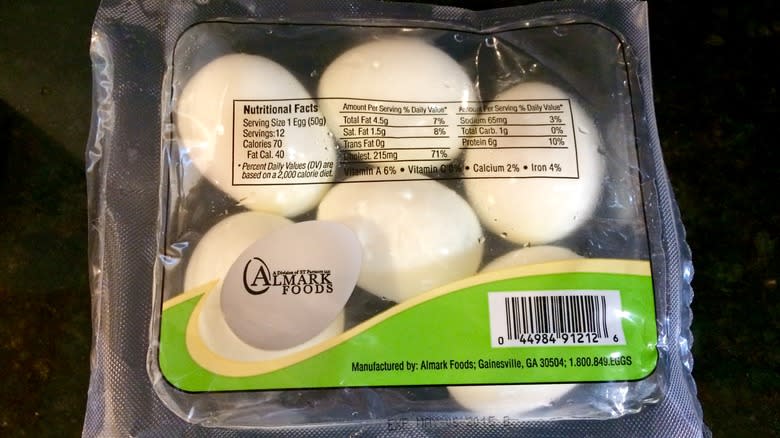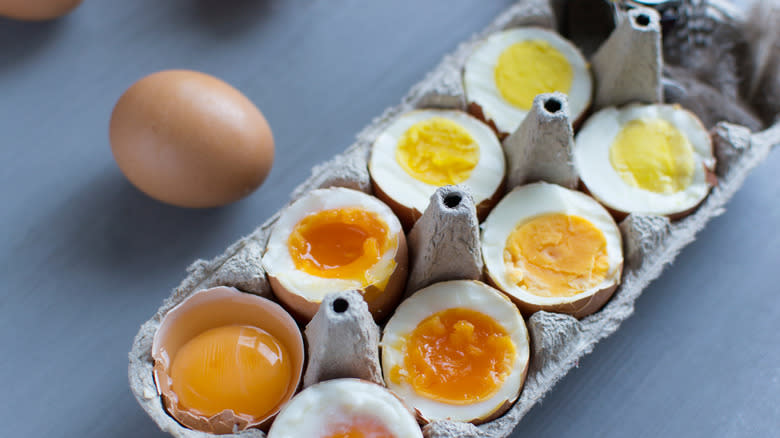Are Store-Bought Hard Boiled Eggs Really Worth The Buy?

You've probably noticed packs of hard-boiled eggs tucked into the fresh egg section of your grocery. Amazingly glossy and perfectly peeled, these eggs look like a good substitute for the effort of cooking them yourself, but are they really? The factors to consider are the cost, and also the texture and taste of the eggs -- not all hard-boiled eggs are equal.
You'll pay more than double the price of a raw egg for the convenience of buying your eggs hard-cooked in most markets, a price that varies depending on the retailer and whether the eggs are organic or conventional. That's not a big bite out of your budget unless you're eating a large quantity of boiled eggs. On average, a store-bought precooked egg costs about one dollar compared to about 25 cents for a raw egg. So, if you're planning to make egg salad or love a few sliced hard-cooked eggs on your salad, the ready-cooked eggs might be worth adding to the shopping list. However, there are additional pros and cons when it comes to the texture of the eggs.
Read more: 23 Whole Foods Baked Goods, Ranked
Convenience Vs Customization Of Your Cooked Eggs

Store-bought boiled eggs are consistently fully cooked but not overcooked. The manufacturers have perfected the ability to get the yolks firm and dry with no sulfurous green ring. The process also fully cooks the egg white to a bouncy texture that resists slightly when cut or bit into. This is the perfect egg for your egg salad sandwiches and deviled eggs; the yolk will mash nicely, and the white stands up to chopping. But if you want a slightly softer yolk, anywhere from runny to jammy, you should leave the boiled eggs at the store and learn how to boil eggs to get the exact texture you want.
We know that the actual cooking of hard-boiled eggs is not hard -- it's the time-consuming peeling process that discourages most cooks. A two-step process of cracking and then rolling the shell helps to peel a warm egg nearly effortlessly. If you need to peel hard-cooked eggs that are refrigerated, warming them slightly helps separate the membrane from the shell and speeds up the process.
With the right cooking and peeling technique, you can save some money by cooking your own eggs and also get your preferred yolk texture. But if you just need a couple of fully cooked eggs, grab a bag –- the slight upcharge might be worth saving a few minutes in prepping your own eggs.
Read the original article on Tasting Table

